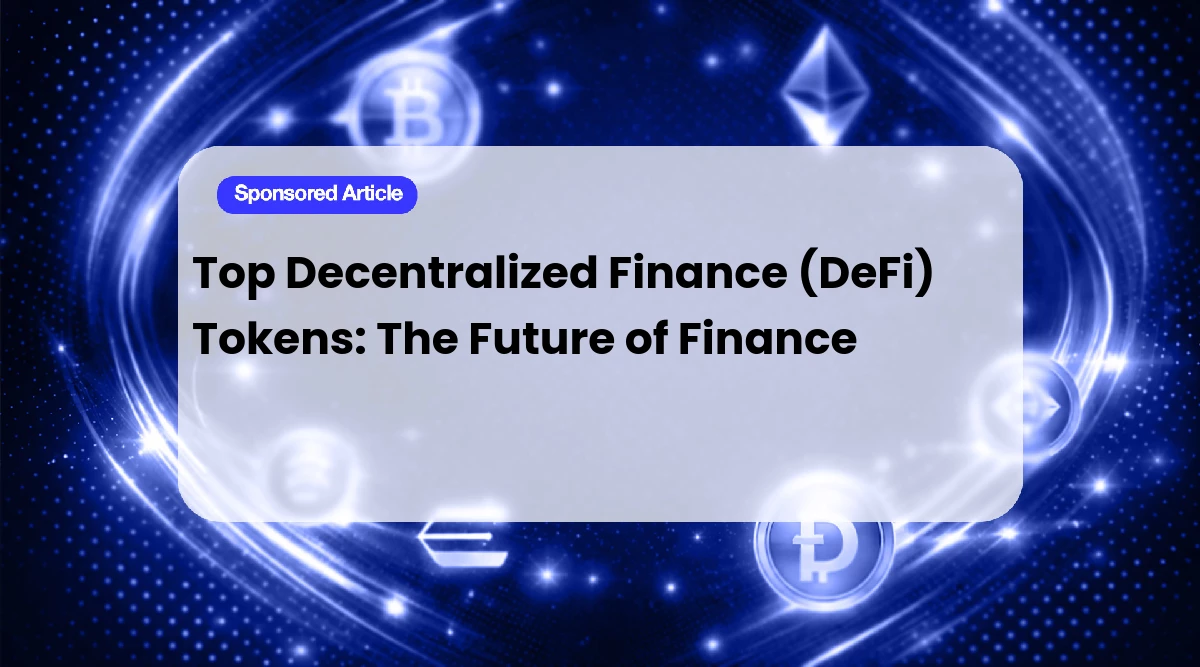
Decentralized Finance, or DeFi, means using blockchain to offer financial services without banks or brokers. DeFi uses smart contracts on blockchains to let people lend, borrow, trade, and earn interest in a simple and open way.
DeFi systems work through decentralized applications (DApps) and smart contracts built on blockchains like Ethereum. These smart contracts run on their own when set rules are met. They remove middlemen and create an open, global, and trustless financial system.
Role of Tokens in DeFi
In the DeFi ecosystem, tokens are very important. These tokens help with voting, rewards, and providing liquidity. Some tokens let users vote on changes, while others show a share in lending pools or trading systems.
Why Tokens Are Critical for DeFi Applications
DeFi tokens help the whole network work well. They let users stake, vote, and provide liquidity. Without these tokens, DeFi platforms would lose active users and strong community control, making DeFi less useful.
Uniswap (UNI)
Uniswap is a well-known decentralized exchange (DEX). It lets people trade cryptocurrencies straight from their wallets without using a central exchange. Its token, UNI, is used for voting on important changes to the Uniswap protocol.
Aave (AAVE)
Aave is a lending platform where users can lend and borrow cryptocurrencies without a bank. The AAVE token is used for voting and can be staked for rewards. AAVE is also known for flash loans, which give users new ways to use DeFi.
Compound (COMP)
Compound is another major DeFi protocol for lending and borrowing. Its COMP token is given to both lenders and borrowers to keep them involved. Compound was one of the first big DeFi projects, and its token is still important today.
Chainlink (LINK)
Chainlink is a decentralized oracle network. It brings real-world data to smart contracts. LINK tokens pay node operators and help move off-chain data onto the blockchain. Chainlink is key to DeFi because it helps advanced apps work safely and correctly.
How to Choose the Best DeFi Tokens
Factors to Consider
When picking the best DeFi tokens, look at the project’s use case, how many people use it, the team behind it, and the general market mood. Tokens with strong uses, helpful features, and many users are usually better long-term choices.
Security and Protocol Trustworthiness
DeFi platforms can face hacks, so safety is very important. Before investing in a DeFi token, check if the project was audited by a trusted firm, has a clear history, and offers strong security to protect user funds.
The Future of DeFi Tokens
Potential Innovations in DeFi
The future of DeFi is full of new ideas like cross-chain systems, Layer 2 scaling, and decentralized insurance. As these ideas grow, DeFi tokens will become even more important in future financial systems.
Challenges and Regulatory Considerations
Even though DeFi is growing fast, it still has problems, especially with rules and laws. Governments and banks are watching DeFi more closely, and new rules may come soon. But with good rules and new ideas, DeFi can still make finance better for many people.
Conclusion
Decentralized Finance is changing how people use money by offering new choices with top Decentralized Finance (DeFi) tokens leading the way. Whether you are new to DeFi or already know it well, learning about these tokens and the larger DeFi ecosystem is important for understanding this fast-growing space.

Dharmendra Vishwakarma is an experienced English News Writer and professional content creator with a strong focus on cryptocurrency, blockchain, and digital asset reporting. Associated with Coin Gabbar, Dharmendra delivers accurate, engaging, and insightful articles that help readers stay updated on the latest developments in the crypto world. Passionate about storytelling and research, he combines thorough analysis with easy-to-understand content, making complex topics accessible. Outside of writing, Dharmendra enjoys reading books, which fuels his creativity and broadens his perspective. His work reflects professionalism, clarity, and a dedication to delivering value to readers and the wider crypto community.